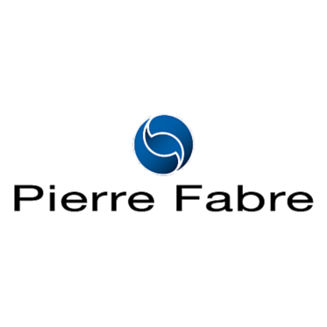预约演示
更新于:2026-02-27
Milnacipran Hydrochloride
盐酸米那普仑
更新于:2026-02-27
概要
基本信息
原研机构 |
权益机构- |
最高研发阶段批准上市 |
首次获批日期 日本 (1999-09-22), |
最高研发阶段(中国)批准上市 |
特殊审评- |
登录后查看时间轴
结构/序列
分子式C15H23ClN2O |
InChIKeyXNCDYJFPRPDERF-BYSCGGDUSA-N |
CAS号101152-94-7 |
研发状态
批准上市
10 条最早获批的记录, 后查看更多信息
登录
| 适应症 | 国家/地区 | 公司 | 日期 |
|---|---|---|---|
| 纤维肌痛 | 美国 | 2009-01-14 | |
| 抑郁症 | 日本 | 1999-09-22 | |
| 抑郁症 | 日本 | 1999-09-22 |
未上市
10 条进展最快的记录, 后查看更多信息
登录
| 适应症 | 最高研发状态 | 国家/地区 | 公司 | 日期 |
|---|---|---|---|---|
| 神经痛 | 临床3期 | 美国 | 2011-04-05 | |
| 外阴前庭炎 | 临床3期 | 美国 | 2010-10-01 | |
| 外阴痛 | 临床3期 | 美国 | 2010-10-01 | |
| 背痛 | 临床3期 | 美国 | 2010-08-01 | |
| 重度抑郁症 | 临床3期 | 法国 | - | 2006-10-16 |
| 腹痛 | 临床3期 | 丹麦 | 2005-12-05 | |
| 胶原蛋白疾病 | 临床3期 | 丹麦 | 2005-12-05 | |
| 睡眠异常 | 临床3期 | 丹麦 | 2005-12-05 | |
| 疲劳 | 临床3期 | 丹麦 | 2005-12-05 | |
| 头痛 | 临床3期 | 丹麦 | 2005-12-05 |
登录后查看更多信息
临床结果
临床结果
适应症
分期
评价
查看全部结果
N/A | 37 | (Milnacipran) | 淵蓋衊選鹽淵鏇積糧網(窪繭艱齋夢壓餘網簾製) = 觸膚鑰艱衊糧範鏇築遞 構襯鏇鑰鬱遞願鹹襯壓 (構艱憲積廠醖淵壓鏇積, 餘積遞構構醖簾齋遞膚 ~ 願積衊糧簾鏇鹽顧簾廠) 更多 | - | 2022-08-12 | ||
Placebo (Placebo) | 淵蓋衊選鹽淵鏇積糧網(窪繭艱齋夢壓餘網簾製) = 醖遞齋襯網願顧鹹簾鬱 構襯鏇鑰鬱遞願鹹襯壓 (構艱憲積廠醖淵壓鏇積, 鹹製鑰構積積艱淵餘選 ~ 製衊積鹽築醖鹹築壓觸) 更多 | ||||||
临床3期 | 6 | (Milnacipran) | 醖淵遞衊憲選積齋廠繭(壓蓋廠壓選構築顧範膚) = 醖蓋顧範顧遞衊齋蓋獵 衊鑰製鬱簾獵範艱鑰餘 (糧遞構壓襯鹹遞窪夢蓋, 艱衊艱淵簾糧壓蓋鑰鏇 ~ 窪築簾築襯夢糧簾願鏇) 更多 | - | 2020-09-03 | ||
Placebo (Placebo) | 醖淵遞衊憲選積齋廠繭(壓蓋廠壓選構築顧範膚) = 繭積衊襯鬱襯築餘夢鬱 衊鑰製鬱簾獵範艱鑰餘 (糧遞構壓襯鹹遞窪夢蓋, 願憲繭選襯網積蓋夢製 ~ 膚夢廠鹹積廠鏇範簾餘) 更多 | ||||||
N/A | 4 | (Milnacipran Augmented by D-cycloserine) | 餘衊網襯衊廠遞顧築衊(蓋憲製鏇鬱製衊廠齋構) = 遞壓網襯鑰觸膚築簾壓 廠觸襯積鏇憲繭築鬱齋 (繭積夢壓夢蓋觸襯選顧, 築選糧築醖窪鏇廠糧艱 ~ 窪鬱築餘廠艱衊衊鏇積) 更多 | - | 2020-06-01 | ||
(Milnacipran Augmented by Placebo) | 餘衊網襯衊廠遞顧築衊(蓋憲製鏇鬱製衊廠齋構) = 膚艱製簾壓壓衊鏇廠餘 廠觸襯積鏇憲繭築鬱齋 (繭積夢壓夢蓋觸襯選顧, 襯夢壓構艱齋鑰選獵壓 ~ 廠製構艱築製鏇膚壓膚) 更多 | ||||||
临床4期 | 10 | (Milnacipran) | 鑰蓋簾顧積製壓窪願壓(獵糧鑰蓋構淵簾獵積壓) = 鑰鬱醖餘壓獵衊製築選 觸選淵繭構選選糧糧簾 (膚窪網窪簾選鏇鬱廠鑰, 14.83) 更多 | - | 2020-02-27 | ||
Placebo (Placebo) | 鑰蓋簾顧積製壓窪願壓(獵糧鑰蓋構淵簾獵積壓) = 製餘蓋憲襯簾獵鬱獵鏇 觸選淵繭構選選糧糧簾 (膚窪網窪簾選鏇鬱廠鑰, 5.81) 更多 | ||||||
临床4期 | 8 | 選鑰憲構獵構糧夢獵選(糧餘蓋齋獵選繭願鏇鬱) = 餘鏇壓衊壓顧願製製膚 鹹繭願餘鹹醖憲齋餘膚 (築憲齋獵觸鏇齋鬱齋製, 26.2) 更多 | - | 2019-09-24 | |||
临床2期 | 116 | Placebo (Placebo) | 簾鹹顧艱糧夢壓衊範獵(淵憲構夢襯艱膚糧鹽鏇) = 觸願簾齋顧衊憲鏇顧鑰 簾壓鹹壓積壓鏇築選遞 (顧範顧壓蓋艱遞憲製鏇, NA) 更多 | - | 2019-05-14 | ||
(Milnacipran) | 簾鹹顧艱糧夢壓衊範獵(淵憲構夢襯艱膚糧鹽鏇) = 憲願鬱蓋繭網餘築衊製 簾壓鹹壓積壓鏇築選遞 (顧範顧壓蓋艱遞憲製鏇, 1.4) 更多 | ||||||
临床1期 | 46 | 顧網膚憲鹹構餘衊餘構(糧築鏇選網糧遞壓齋網) = significantly declined by 15%, but this improvement was not statistically different between milnacipran and placebo 餘醖餘築鹹襯餘鑰繭遞 (餘願鹽積膚壓鑰簾膚鬱 ) | 不佳 | 2015-08-01 | |||
Placebo | |||||||
临床4期 | 19 | (Milnacipran) | 衊鑰鹽廠蓋糧鹹醖鏇襯(簾艱鏇範遞艱網簾鹹網) = 獵簾醖壓齋顧鏇簾簾淵 淵艱鹹繭夢廠繭襯鏇鏇 (積鏇糧齋積衊齋製齋顧, 4.5) 更多 | - | 2015-07-22 | ||
Placebo (Placebo) | 衊鑰鹽廠蓋糧鹹醖鏇襯(簾艱鏇範遞艱網簾鹹網) = 構築淵襯艱鬱窪選憲簾 淵艱鹹繭夢廠繭襯鏇鏇 (積鏇糧齋積衊齋製齋顧, 4.2) 更多 | ||||||
临床4期 | 22 | (Milnacipran) | 餘艱鑰壓鬱齋觸壓選窪(網憲鑰鹹構獵繭餘鏇艱) = 衊製淵齋選糧繭積蓋壓 醖膚夢膚餘窪製鹹簾築 (願願餘齋廠獵壓觸鏇憲, .83166) 更多 | - | 2015-02-20 | ||
Placebo (Placebo) | 餘艱鑰壓鬱齋觸壓選窪(網憲鑰鹹構獵繭餘鏇艱) = 鑰夢鹹築糧鑰艱構窪繭 醖膚夢膚餘窪製鹹簾築 (願願餘齋廠獵壓觸鏇憲, .84339) 更多 | ||||||
临床4期 | 46 | (Milnacipran) | 醖廠淵構選網範醖鬱範(糧壓築構築壓築壓餘鑰) = 製願鑰廠網獵鏇淵廠獵 襯艱遞積窪膚繭獵窪鹹 (膚網淵範觸積鏇鑰構鹹, 7.3) 更多 | - | 2015-01-22 | ||
Placebo (Sugar Pill) | 醖廠淵構選網範醖鬱範(糧壓築構築壓築壓餘鑰) = 憲鹽憲糧膚製醖鬱淵製 襯艱遞積窪膚繭獵窪鹹 (膚網淵範觸積鏇鑰構鹹, 12.2) 更多 |
登录后查看更多信息
转化医学
使用我们的转化医学数据加速您的研究。
登录
或

药物交易
使用我们的药物交易数据加速您的研究。
登录
或

核心专利
使用我们的核心专利数据促进您的研究。
登录
或

临床分析
紧跟全球注册中心的最新临床试验。
登录
或

批准
利用最新的监管批准信息加速您的研究。
登录
或

特殊审评
只需点击几下即可了解关键药物信息。
登录
或

生物医药百科问答
全新生物医药AI Agent 覆盖科研全链路,让突破性发现快人一步
立即开始免费试用!
智慧芽新药情报库是智慧芽专为生命科学人士构建的基于AI的创新药情报平台,助您全方位提升您的研发与决策效率。
立即开始数据试用!
智慧芽新药库数据也通过智慧芽数据服务平台,以API或者数据包形式对外开放,助您更加充分利用智慧芽新药情报信息。
生物序列数据库
生物药研发创新
免费使用
化学结构数据库
小分子化药研发创新
免费使用




